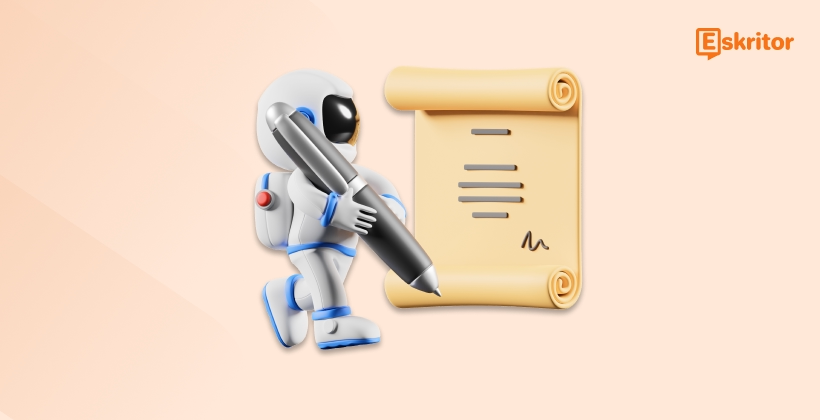As synthetic intelligence (AI) evolves, it remains to revolutionize how exactly we method modern modifying practices. From grammar correction tools to sophisticated material era platforms, AI Editing is reshaping the way authors, writers, and creators refine their work. That website examines the position AI plays in contemporary modifying and the influence it's across industries.

AI-Powered Methods Leading the Cost
AI-powered instruments are becoming an crucial part of modifying workflows. Application fueled by organic language handling (NLP) and device learning can perform jobs like grammar checks, stylistic ideas, and word restructuring with incredible speed and accuracy.
For instance, AI-based syntax pieces can identify mistakes that the human eye may possibly ignore, such as subject-verb contract dilemmas or lost modifiers. Similarly, design enhancements produced by AI make sure that tone and flow arrange with the supposed market, that is priceless for qualified editors.
These resources are not only limited to traditional grammar corrections. They can handle improving readability, transforming inactive voice to effective voice, and actually paraphrasing whole paragraphs without adjusting the meaning.
Performance Matches Time Savings
Studies show that the utilization of AI methods may lower modifying time by up to 30%. As opposed to poring over every phrase manually, publishers may emphasis their initiatives on innovative and proper components of content. This change enables experts to manage higher quantities of text in shorter periods, which can be especially valuable for industries like writing and digital marketing.
Furthermore, predictive AI functions may highlight recurring problems, supporting authors boost their abilities over time. For agencies, this means less sources allocated to revisions and more finished components from the comfort of the start.
Improving Supply and Globalization
AI's position in contemporary modifying runs beyond efficiency. Advanced interpretation and localization methods allow makers to adjust material seamlessly for global audiences, deteriorating language barriers with precision. That engineering assures that the same meaning may resonate with countries world wide while maintaining their authenticity.
AI also raises inclusivity criteria by improving convenience in content. As an example, methods can identify probably non-inclusive language and recommend alternatives. That capability allows writers to refine writing so that it resonates with diverse audiences.

Impressive a Balance Between AI and Individual Imagination
While AI excels in rate and accuracy, it generally does not change human editors. Products often absence the ability to read nuance, sentiment, or social context fully. The best program includes AI's efficiency with human imagination and perception, resulting in truly outstanding work.
By leveraging these technologies in modern editing practices, builders and authors equally may create supreme quality material that aligns with the fast-paced demands of today's digital world. AI may be the potential of modifying, however the individual feel can be required for storytelling and connection.
